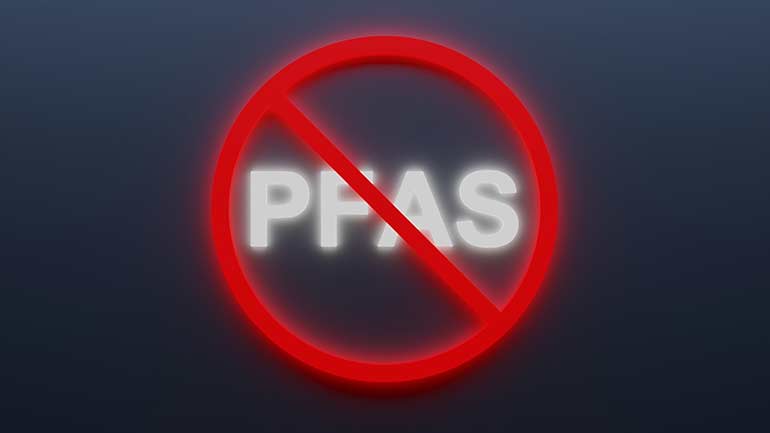PFAS proposals are “disproportionate”
2nd September 2023
BELGIUM: An association representing 770,000 European technology companies has called the proposed “blanket restriction” of all PFAS, regardless of their toxicity and risk profile, disproportionate.
In a new position paper, Orgalim, which represents companies spanning the mechanical engineering, electrical engineering and electronics, ICT and metal technology sectors, states: “The proposed general ban on the production, use, and market availability of per- and polyfluorinated alkyl substances (PFAS) would significantly impact on our industries’ ability to produce robust and reliable products.”
Orgalim (Organisme de Liaison des Industries Métalliques Européennes) represents 29 national industry associations and 20 European sector associations, forming the EU’s largest manufacturing group. In all, the companies involved generate an annual turnover of €2,906 billion, manufactue one-third of all European exports and provide 11.19 million direct jobs.
The group insists that Implementing a blanket PFAS ban would jeopardise the fulfilment of the European Green Deal. Referring to products such as semiconductors, lithium batteries, heat pumps, high-temperature seals, specialised refrigeration equipment, technologies for energy transmission and distribution, Orgalim says: “These products can only be produced today with the use of PFAS and would not work at all or work significantly less efficiently without it. The current proposal would result in reduced product durability and a substantial increase in waste generation.”
The position paper is the latest industry response to a proposed a ban on PFAS substances under a new definition that would impact thousands of currently used materials including practically all HFC and HFO refrigerants, as well as O-rings, packed glands, flat gaskets and other sealing systems used in air conditioning and refrigeration systems.
Double regulation
The position paper recognises that HFO refrigerants have already been identified as an alternative “environmentally-friendly option with a small global warming potential” for the replacement of high GWP HFCs under the F-gas regulation.
“However, the proposed restriction of PFAS also includes the removal of HFOs, and since they are already covered by both regulations, it is crucial to avoid double regulation to ensure that there will be alternatives left for refrigerants,” Orgalim says. “Therefore, the interface with other regulations related to substances meeting the proposed PFAS definition (eg upcoming revised F-Gas Regulation) must be clarified.”
Derogations
Orgalim suggests that only applications associated with an identified risk, and where alternatives exist, should be restricted and the use of PFAS must remain possible as long as there is no full-scale availability of suitable and technically developed substitutes.
It calls for a long-term general derogation with review before expiration of fluoropolymers without relevant risk and a clearly defined procedure for the application, review and extension of derogationsl, especially in the case of a broad restriction on previously non-declarable substances.
“The derogations currently envisaged are insufficient and do not take into account the relevance of PFAS for a wide range of uses and ongoing innovations in the technology industry,” the statement says.
It also calls for indefinite derogations for spare parts, refurbished parts, and equipment as well as products already placed on the market.
The position paper can be read and downloaded here.
Related stories:
PFAS exemptions required for critical applications – 10 July 2023
GERMANY: A leading German research body has said that, without exemptions, any future PFAS regulation could jeopardise the safe and effective uninterrupted operation of refrigeration and heat pump systems. Read more…
PFAS ban considers impact on heat pumps – 7 February 2023
EUROPE: A number of HFC refrigerants and low GWP HFO alternatives could be banned under new PFAS chemical restrictions proposed to the European Chemicals Agency (ECHA). Read more…
PFAS refrigerant ban could impact EU green aims – 4 January 2023
EUROPE: The chemical industry claims that proposals to ban certain refrigerants as PFAS substances under the European REACH regulations could compromise EU Green Deal and REPowerEU goals. Read more…







